Speakers
Description
Low-temperature single-quantum detectors have long been used in the search for new physics beyond the Standard Model.
Since they were first proposed for neutrino physics experiments in 1984 by E. Fiorini and T. Niinikoski, there have been impressive technical advances: today these techniques offer the high energy resolution and scalability required for competitive experiments that address many outstanding questions.
For decades low-temperature detectors of different sizes have been adapted to provide optimal performance in the energy range of a few eV to a few MeV and thus to be exploited for dark matter searches, neutrinoless double beta decay, coherent neutrino scattering, and for direct neutrino mass measurements.
In this talk I will review the most widely used and advanced sensing techniques based on doped semiconductor sensors, transition-edge sensors, metallic magnetic sensors, and microwave microresonator sensors. In addition, I will introduce new quantum devices, such as those based on superconducting qubits, which have recently made it possible to design new experiments that extend the range of new physics research, particularly with respect to dark matter.
Finally, I will also highlight the most competitive experiments using these technologies and their most exciting prospects in the challenges for the search for new physics beyond the Standard Model.




